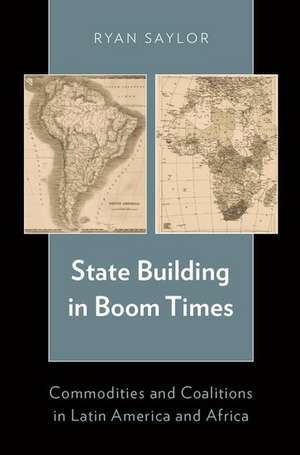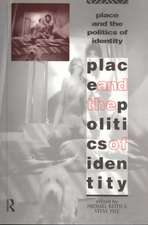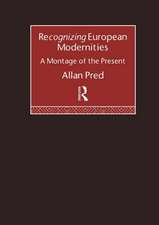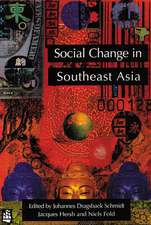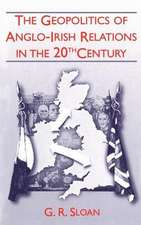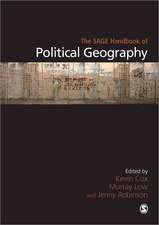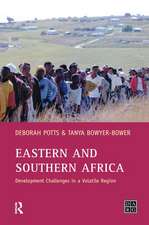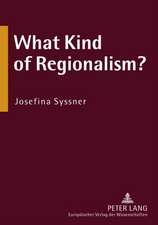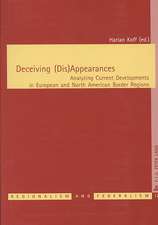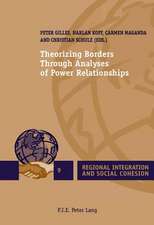State Building in Boom Times: Commodities and Coalitions in Latin America and Africa
Autor Ryan Sayloren Limba Engleză Hardback – 24 iul 2014
Preț: 394.64 lei
Preț vechi: 544.40 lei
-28% Nou
Puncte Express: 592
Preț estimativ în valută:
75.52€ • 79.04$ • 62.85£
75.52€ • 79.04$ • 62.85£
Carte tipărită la comandă
Livrare economică 19-25 martie
Preluare comenzi: 021 569.72.76
Specificații
ISBN-13: 9780199364954
ISBN-10: 0199364958
Pagini: 256
Dimensiuni: 251 x 175 x 23 mm
Greutate: 0.48 kg
Editura: Oxford University Press
Colecția OUP USA
Locul publicării:New York, United States
ISBN-10: 0199364958
Pagini: 256
Dimensiuni: 251 x 175 x 23 mm
Greutate: 0.48 kg
Editura: Oxford University Press
Colecția OUP USA
Locul publicării:New York, United States
Recenzii
In this wonderful new book, Saylor takes us away from Hegelian notions of state capacity as somehow divorced from plain old politics. He is very persuasive that states do not grow in a deterministic fashion, but reflect the societal distributions of power, demands from below, and the capacity of political institutions to address these. His selection of cases is unique in its breadth and depth and provides outstanding empirical support for his theoretical claims. Experts on Africa, Latin America, public governance, and politics in general will value this important contribution.
Saylor's book provides a useful counterweight to influential work on state building that has focused on extractive capacity and the need for revenue. He points to other kinds of state capacity, such as the ability to provide public goods, and argues that these capacities develop for reasons having more to do with coalitional politics than the fiscal dynamics that have long been at the center of state building theories. In documenting and explaining a wide range of capacity building outcomes during commodity booms in Latin America and Africa, his work should not only influence scholarship on the 'resource curse' but also fruitfully expand the set of dependent and independent variables in scholarship on state capacity.
Saylor's book makes an important contribution to our understanding of state formation, challenging dominant perspectives on the role of war and the resource curse. His careful conceptualization and comparative historical analysis illuminates the importance of bottom-up societal dynamics, specifically the contingency of coalitional politics in boom times in six developing countries in Africa and Latin America.
In State Building in Boom Times, Saylor joins a growing group of voices refuting a one-size-fits-all negative take on the politics of resource wealth. Saylor suggests instead that the nature of ruling coalitions during commodity booms drives elite decisions about investing in state capacity. He employs a nicely thought-out cross-regional comparison of a half dozen countries in Latin America and sub-Saharan Africa to trace the lineages of strong states in some and weak ones in others. Saylor's is a new and smart voice in the comparative study of post-colonial state building and I welcome his entry into this ongoing scholarly debate.
Saylor's book provides a useful counterweight to influential work on state building that has focused on extractive capacity and the need for revenue. He points to other kinds of state capacity, such as the ability to provide public goods, and argues that these capacities develop for reasons having more to do with coalitional politics than the fiscal dynamics that have long been at the center of state building theories. In documenting and explaining a wide range of capacity building outcomes during commodity booms in Latin America and Africa, his work should not only influence scholarship on the 'resource curse' but also fruitfully expand the set of dependent and independent variables in scholarship on state capacity.
Saylor's book makes an important contribution to our understanding of state formation, challenging dominant perspectives on the role of war and the resource curse. His careful conceptualization and comparative historical analysis illuminates the importance of bottom-up societal dynamics, specifically the contingency of coalitional politics in boom times in six developing countries in Africa and Latin America.
In State Building in Boom Times, Saylor joins a growing group of voices refuting a one-size-fits-all negative take on the politics of resource wealth. Saylor suggests instead that the nature of ruling coalitions during commodity booms drives elite decisions about investing in state capacity. He employs a nicely thought-out cross-regional comparison of a half dozen countries in Latin America and sub-Saharan Africa to trace the lineages of strong states in some and weak ones in others. Saylor's is a new and smart voice in the comparative study of post-colonial state building and I welcome his entry into this ongoing scholarly debate.
Notă biografică
Assistant Professor of Political Science, University of Tulsa
